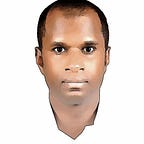Embrace boldness for personal growth: The power of audacity in your journey
As the world evolves at an unprecedented pace, the ability to step out of one’s comfort zone and take bold initiatives becomes increasingly crucial. Unlike mere confidence, boldness is an attribute that encourages individuals to confront challenges head-on, fostering resilience in the face of adversity. It is this courage that propels young people forward, urging them to pursue opportunities, even when the path is uncertain. While intelligence undoubtedly stands as a fundamental asset, it is the fusion of boldness and intelligence that propels individuals to new heights in life. Intelligence alone may equip individuals with knowledge and analytical skills, but it is the audacity to apply this intelligence fearlessly that distinguishes exceptional achievements from the ordinary. Boldness acts as the catalyst that transforms knowledge into action, enabling young minds to seize opportunities and overcome obstacles. The synergy of intelligence and boldness creates a powerful combination, elevating individuals beyond the realms of their potential and into the realm of unparalleled success.
Boldness not only empowers individuals to navigate challenges but also serves as a catalyst for innovation and leadership. In today’s dynamic and competitive world, where change is the only constant, young people need to be pioneers rather than passive participants. The boldness to challenge conventions, explore uncharted territories, and lead with conviction is what sets apart those who merely succeed from those who redefine success. Bold individuals become catalysts for change, contributing to progress, growth, and the shaping of a better future. The need for young people to cultivate the courage for boldness is irrefutable. As they navigate the complexities of personal and professional life, boldness becomes the driving force that amplifies the impact of intelligence. The dynamic interplay of these qualities not only opens doors to unparalleled achievements but also positions individuals as architects of their destinies. Thus, as young individuals embark on their journey of growth, fostering the synergy of intelligence and boldness will undoubtedly serve as a potent formula for a fulfilling and successful life.
But the manifestation of boldness or audacity carries its own set of challenges: In the intricate web of human relationships, the paradox of boldness often reveals itself: the more self-sufficient and assertive one becomes, the more likely it is that not everyone will appreciate those qualities. There is a subtle expectation ingrained in societal dynamics that individuals ought to depend on others, seek approval, or express a certain level of vulnerability. This expectation, however, clashes with the spirit of boldness, independence, and self-reliance. In many instances, individuals who exude these traits may find themselves facing resistance, as some people may feel uncomfortable or threatened when others demonstrate the ability to navigate life’s challenges without relying on their support.
In the dynamic landscape of the workplace, the contrast between individuals with boldness and those without often plays a crucial role in determining long-term success. Consider the case of two colleagues, Audu and Bukar, who embarked on their professional journeys with distinctive approaches. Audu was known for his boldness and audacity, always eager to take on new challenges and propose innovative ideas. In contrast, Bukar, though competent, preferred a more cautious and reserved approach, avoiding unnecessary risks. In the short term, Bukar seemed to have the upper hand. His risk-averse strategy ensured smooth sailing, with minimal resistance from colleagues and superiors. On the other hand, Audu, with his bold initiatives, faced initial resistance and skepticism from some quarters. The workplace, often resistant to change, found Audu’s audacity unsettling, creating hurdles that Bukar seemed to effortlessly sidestep. However, as time unfolded, the tables turned. Audu’s boldness, initially met with resistance, began to yield remarkable results. His willingness to challenge the status quo and embrace calculated risks propelled him into roles of increasing responsibility. He spearheaded transformative projects, showcasing the value of innovation and adaptability. In the long run, Audu’s boldness not only overcame the resistance he encountered but also positioned him as a trailblazer in the organization. On the contrary, Bukar’s lack of boldness, while providing short-term comfort, became a limiting factor in his career trajectory. The workplace, evolving and demanding dynamic leadership, started to recognize the importance of innovation and bold decision-making. Bukar’s reluctance to step out of his comfort zone gradually hindered his advancement, and he found himself lagging behind.
This dichotomy between short-term success and long-term impact highlights the pivotal role of boldness in navigating the complexities of the professional realm. While initial resistance may pose challenges, the enduring rewards for those who embrace boldness often far exceed the short-lived advantages gained by playing it safe. In the end, Audu’s audacity propelled him to greater heights, illustrating the profound and lasting impact of boldness on long-term career success. In a world where interdependence is often celebrated, those who showcase self-sufficiency might be perceived as challenging the status quo. The discomfort some individuals feel when faced with someone who confidently finds their way around without constantly seeking evaluation is rooted in a societal expectation that one’s worth is tied to their dependence on others. The fear of being rendered unnecessary or overlooked can lead some people to harbour resentment or animosity toward those who confidently chart their own course, exposing a tension between the desire for independence and the societal inclination to foster dependency.
Despite the resistance boldness may encounter, it remains an essential quality for personal growth and empowerment. The ability to navigate one’s path independently does not negate the value of collaboration or connection with others; rather, it enhances the richness of relationships by allowing individuals to come together as equals. As society continues to evolve, it is crucial to challenge the notion that dependency is a measure of one’s worth. Embracing boldness not only fosters individual resilience but also contributes to a collective paradigm shift where self-sufficiency is celebrated rather than perceived as a threat.
January 15, 2024
